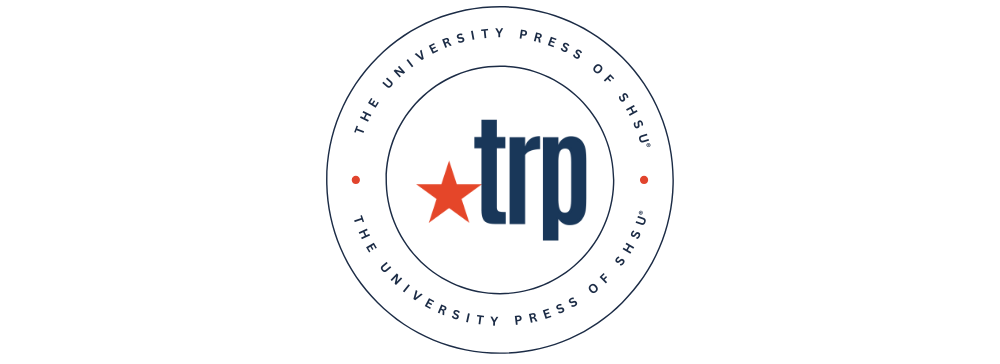Karisma J. Tobin interviews Texas Review Press author Elizabeth Genovise
Elizabeth Genovise is a graduate of the MFA program at McNeese State University in Lake Charles, Louisiana. She is the author of Posing Nude for the Saints, A Different Harbor, and Where There Are Two or More. Her fiction has appeared in the O. Henry Prize anthology of 2016 and in dozens of literary journals. Currently she teaches creative writing, literature, and composition, and also works as a private writing coach for aspiring authors.
What books are you reading now?
I’m late to the party, but I’m just getting into David Mamet’s Three Uses of the Knife. During the coronavirus lockdown, I re-read Hardy’s Tess of the D’Urbervilles—I’d almost forgotten its stunning lyricism. I also worked through a collection of Chekhov’s short novels, and Andre Dubus’s essays, Meditations from a Movable Chair.
How are you keeping yourself busy during social distancing?
Predictably, I’ve been writing like one possessed, some days for six hours or more. I’ve been preparing for the fall semester (I’m a teacher) and taking long walks and hikes. But I’ve also done some comically lame things to fill the time, things I otherwise would not be caught dead doing . . . like watching “cats being jerks” on YouTube, or attempting badminton on my parents’ lawn in Chicago using a set we bought at a Walmart (what the hell was that?).
What does your typical writing process look like?
It is a very feminine process—long periods of quiet incubation, followed by a painful delivery (the production of the actual work). During those stretches of incubation, I’m reading constantly and filling notebooks with everything from stray images to little pieces of dialogue. To an outsider, it looks like a nonsensical mess, but eventually everything comes together like a jigsaw puzzle. When that happens, it’s time to write.
It is a very feminine process—long periods of quiet incubation, followed by a painful delivery
Did you like to read as a child? Were there any childhood books and authors that were your favorites?
My parents fed me literary fiction pretty much as soon as I could read. Once, a babysitter left behind a Harlequin-romance-type novel at our house, and naturally I read it. My father discovered me with this book and told me, this is not art. He wasn’t so much upset about the risqué content as he was about the prose’s poor quality. I never forgot that, and I was never interested in “beach novels” or casual reads. As a child I read a lot of books I didn’t understand, but that was the very thing that drew me to them. The characters and ideas were misted over, waiting on the other side of a vast lake or field, and there was always this frustration of wanting to cross to them and being unable to do so. But I preferred this to an easy answer. What can I say—I was a weird kid.
What books are on your nightstand?
I have a bench next to my bed where my “sacred” texts live: the novels of Dostoevsky and Tolstoy, McCarthy’s The Road, Steinbeck’s East of Eden, the complete works of T.S. Eliot, and a collection of Vincent Van Gogh’s letters.
What’s your all-time favorite book?
The Brothers Karamazov.
If you could have a conversation with any writer living or dead, who would it be and what would you ask them?
I’d love to talk to Chekhov about his process, and ask what prompted the subtle shifts in his writing over the course of his lifetime. After that I’d just let him talk and see what genius came spilling out. I’d choose him because of all the writers I’ve extensively studied, he is the most enigmatic to me.
What book should you wait until the age of 40 to read?
I’m 35, so I feel like I’m cheating by answering this . . . But I’d say Wallace Stegner’s Angle of Repose. I read it about every other year, and each time I do, I glean something else from it. It’s a book about a marriage, and it means more when you are deep into a marriage of your own.
What’s your favorite obscure book?
I’m not sure it’s obscure per se, but it’s probably not taught too often in schools . . . a vulgar-but-brilliant play called The Last Days of Judas Iscariot by Stephen Adly Giurgis. A poet friend of mine introduced me to this play and I fell in love on the first read.
Are there any classic books you feel like you should read but just can’t?
Certain canonical authors just haven’t struck a chord with me. Dickens is one of them. I can’t put my finger on why. The academic in me says that I must sit down and read all his books one of these summers, just to give him his fair chance. But I won’t do it, maybe because I’m really not an academic.
You are organizing a literary dinner party. Who do you invite?
If I were allowed to have a mix of living & deceased writers, I’d ask Tim Gautreaux, Marilynne Robinson, Andre Dubus I, Tim O’Brien, Amor Towles, Alice McDermott, and Edith Wharton. Hemingway & Fitzgerald would add a nice alcoholic touch. I’d have a separate party on another night for the canonical Russian writers because, let’s face it, they’d be a buzzkill even if we kept the vodka flowing, and I’d want all these people to come back.
Karisma J. Tobin grew up in the mountains of New Mexico and Alaska. She is an MFA and MA candidate at Sam Houston State University. Her work appears in Plainsongs (forthcoming), THAT Literary Review, Beacon, and Leonardo. She is currently Assistant to the Managing Editor at Texas Review Press.



One thought on “TRP Q&A: An Interview with Elizabeth Genovise”